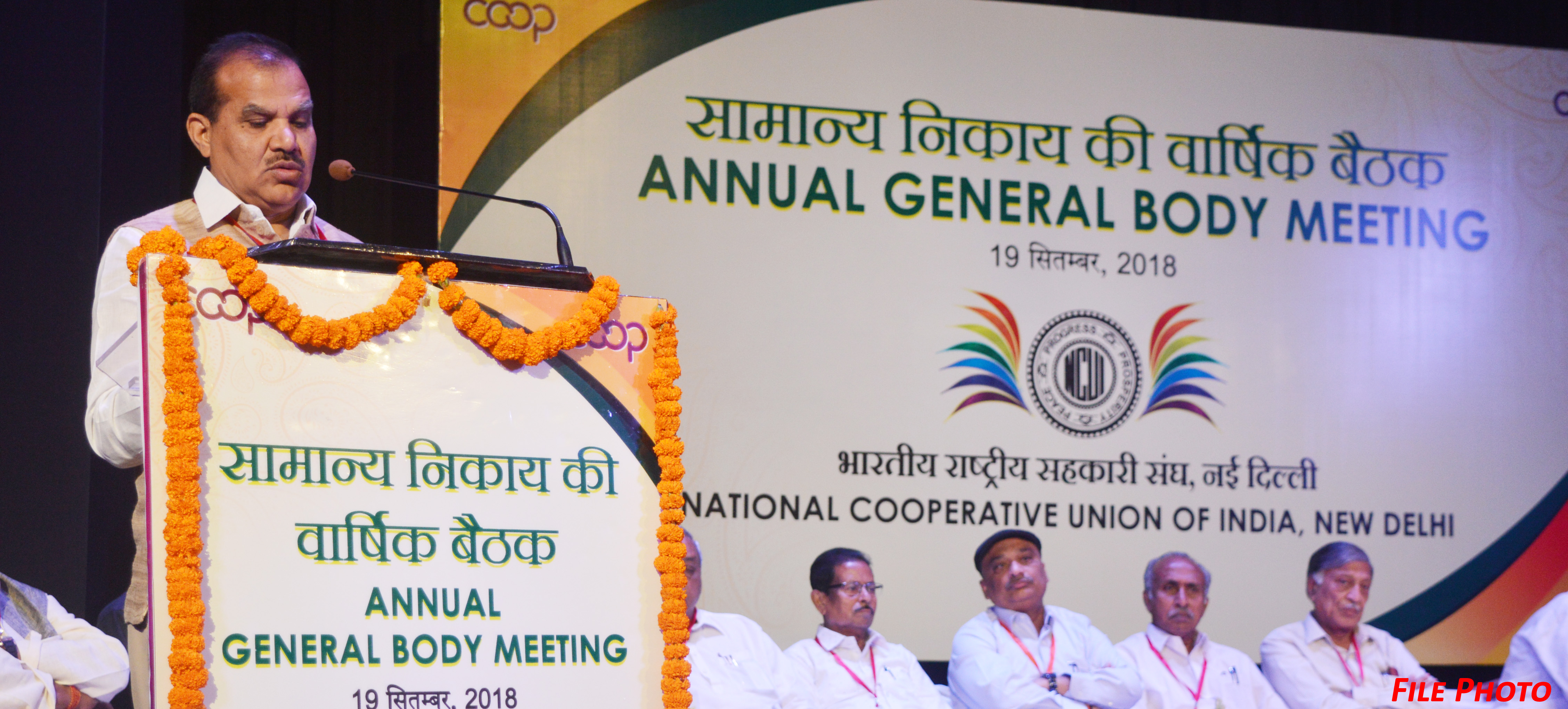The Annual General Body meeting of the national apex cooperative body NCUI will take place today Wednesday in which more than 150 delegates from across the country from Kashmir to Kanyakumari are expected to participate.
“NCUI has about 261 delegates which are spread practically in all the states and union territories but since we have no tradition of giving any TA-DA, we expect a participation of about 150 delegates”, said CE N Satyanarayan Tuesday evening while giving the last touches to the preparations.
Satyanarayan also added that the AGM has no special agenda and is largely going to be a routine one. Adoption of the budget for the new financial year and passing of the budget for the last year, appointment of Auditor are the routine issues being taken up Wednesday in the AGM, said the CE.
This AGM is also going to be the last one for NCUI President Dr Chandra Pal Singh of his current tenure. As the elections of a new Governing Council is slated in the first half of the next year, Chandra Pal cannot contest due to the compulsion of the MSCS Act which does not permit a third chance to a candidate.
Talking to Indian Cooperative just a day prior to the AGM Chandra Pal said “Indeed its my last AGM as the President but it does not mean that my involvement with NCUI and the cooperative movement of the country is going to end.”
When asked to say the parting words, Chandra Pal smiled and said “come tomorrow to know that”.
Of late Chandra Pal has been working hard to bring NCCT back to the NCUI fold. He has met Union ministers and Ministry’s Babus and a positive vibe in the matter has been built. He expects to clinch the issue before he retires next year.
Meanwhile, delegates from across states have been occupying different co-op guest houses of the town since last evening. The AGM would be held at the apex body’s Auditorium at Siri Fort Road in Delhi. The GC is going to meet at 11 am and the AGM would begin at 12 noon”, informed NCUI’s CE.
In the last AGM the President of NCUI had given a clarion call to small and marginal farmers to unite into co-operatives.
Today 85 per cent farmers have lands in the range of 1-1.5 hectares and according to a study, the figures are projected to go up to 91 per cent by 2030. These farmers cannot afford to buy expensive technologies or find a suitable market on their own. Hence the need for them to unite in a co-op, Yadav had emphasized.
